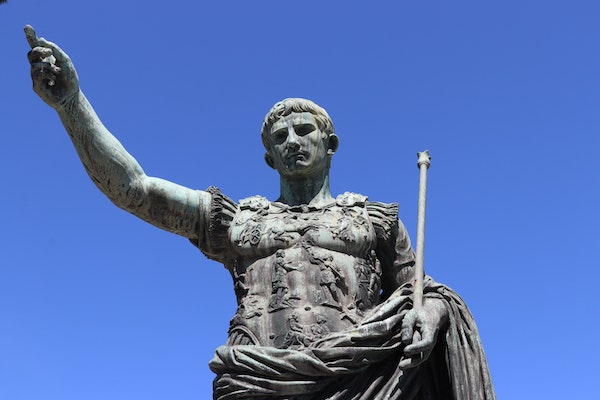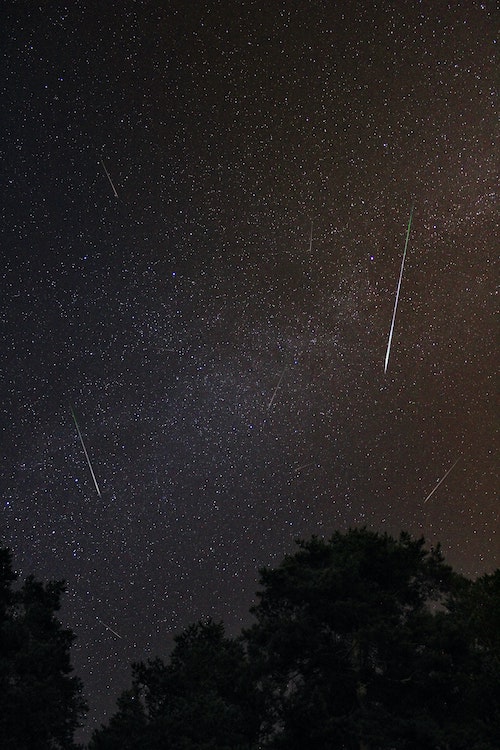
Leaving It All On The Field: Jack Klett and Major League Fatherhood
July 26, 2022
‘She Makes Me Better’: Elizabeth makes everyone around her better, especially Kevin and his daughter
July 29, 2022Have you ever wondered how the month of August got its name?
What about the reason why it is 31 days?
As July is wrapping up and we enter the month of August, we’ve got you covered on all those answers and much, much more.
For over 2,000 years, we have lived our lives using some variation of the Julian calendar, which was a calendar ordered by none other than Julius Caesar himself. While his calendar consisted of a leap year every three years instead of the normal four that we have today, much of the ideas he had behind the calendar was the same as it is today.
That’s enough history for the entire calendar today though, as we want to focus on the month that starts in just four days. That being said, we have looked into the history of August and have broken it down into some questions that you readers may have about the eighth month of the calendar.
Why is it called August?
Remember how we mentioned that Julius Caesar helped bring us the start of the calendar we all know today? Well, the month of August does not fall far from the tree.
That’s right. August got its name from one of Julius Caesar’s descendants, his grandnephew Augustus Caesar.
However, whether people thought he deserves to have this month named after him is still up for debate, as the man whose name means “honored” and “revered one” was not given the honor of having a month named after him. Instead, much like his great uncle, he decided to name August after himself.
Regardless, to this day August is still one of only two months named after a Roman ruler.

Has August always been August?
The short answer to this question is no, August has not always been called August.
In fact, its old name does not even align correctly with the calendar anymore, so maybe it’s good Augustus named the month after himself.
Before it was August, the eighth month on the Gregorian calendar used to be Sextilis (sixth month). This was before January and February were added and August became the new name, so the name made complete and total sense at the time.
What is the meaning of August?
When you look up the name August in the dictionary, it lists two different definitions of August. While neither of them are necessarily meant to define the month, it is still something worth noting.
The first definition is: “inspiring reverence or admiration; of supreme dignity or grandeur; majestic.”
The second definition is: “venerable; eminent.”
Both can be used as interesting ways of looking at the name August and the meaning of it, and it is something that I’m sure some people do use as an obscure definition and meaning to the month.
What are the zodiac signs in August?
While I am by no means an advocate for zodiac signs or even someone who necessarily believes in them, this section is for the people who are into horoscopes.
That said, there are two different zodiac signs represented in the month of August – Leo and Virgo – and they both have different meanings.
In August, Leos are born anywhere from the first to the 22nd and are considered to be “vivacious, theatrical and passionate.” They are said to be loyal to a fault, albeit they can also be narcissistic and full of themselves, and they all in all have the boldness of a lion.
From the 23rd to the 31st, Virgos are born and they are “logical, practical and systematic.” Virgos are very gentle and very selfless, but they are also very intelligent and use reasoning in a lot of what they do.
August is represented by two zodiac signs with completely different meanings, but they are two zodiac signs that are going to be there for others at all times nonetheless.
What can I expect from the August night skies?
On August 11 this year, you will be able to see the Sturgeon Moon, which is a full moon that to some can be seen as a just-past-full moon, and will be very close to Saturn, which will make for a beautiful-looking moon that night.
The Sturgeon Moon is also the final supermoon of the year, the first of which appeared in May.
August 2022 is also home to the Perseid meteor shower. Considered one of the most amazing cosmic light shows of the year, it is a meteor shower that would typically light up the night sky. However, due to the aforementioned Sturgeon Moon, the Perseids might not be as amazing this year.
What other things represent the eighth month of the year?
The month of August is represented by two birth flowers, the gladiolus and the poppy. Both flowers represent remembrance and are easy to grow, and they are both gorgeous flowers.
August is also represented by the peridot birthstone, which is lime-green in color and one of the only gems that does not rely on impurities for its color. This also plays into the fact that it is one of the only gemstones that comes in a single color, and the meaning behind the name is to “give in abundance.” Peridots are brought to the earth’s surface by volcanic activity, which is yet another reason why it is such a unique birthstone.
August used to be represented by the sardonyx, as well as the spinel, before its birthstone permanently became the peridot.
What else is there to know about this summer month?
I could go on and on about the month of August, but I will bring you just two more facts as we close out this blog post.
First off, the middle of the eight month of the year brings us the end of the dog days of summer. You know those hot, muggy, sometimes unbearable days of summer? Yeah, that’s the dog days of summer.
Second, Augustus Caesar wanted to have the month named after him to have 31 days as well – just like Julius Caesar – as he wanted his namesake month to feel inferior to all the other ones. That’s why back-to-back months have 31 days in them. It’s also why February sacrificed a couple extra days to become only 28 days three out of four years.
With all this new knowledge on the eighth month on the calendar, you are now an August expert just like me. Who knows what good this new knowledge will do for us, but it is interesting and unique knowledge to say the least.
Happy end of July and beginning of August!






1 Comment
[…] I mentioned in the history of August blog post, we have been using a variation of the Julian calendar for quite some time. But over the years, we […]